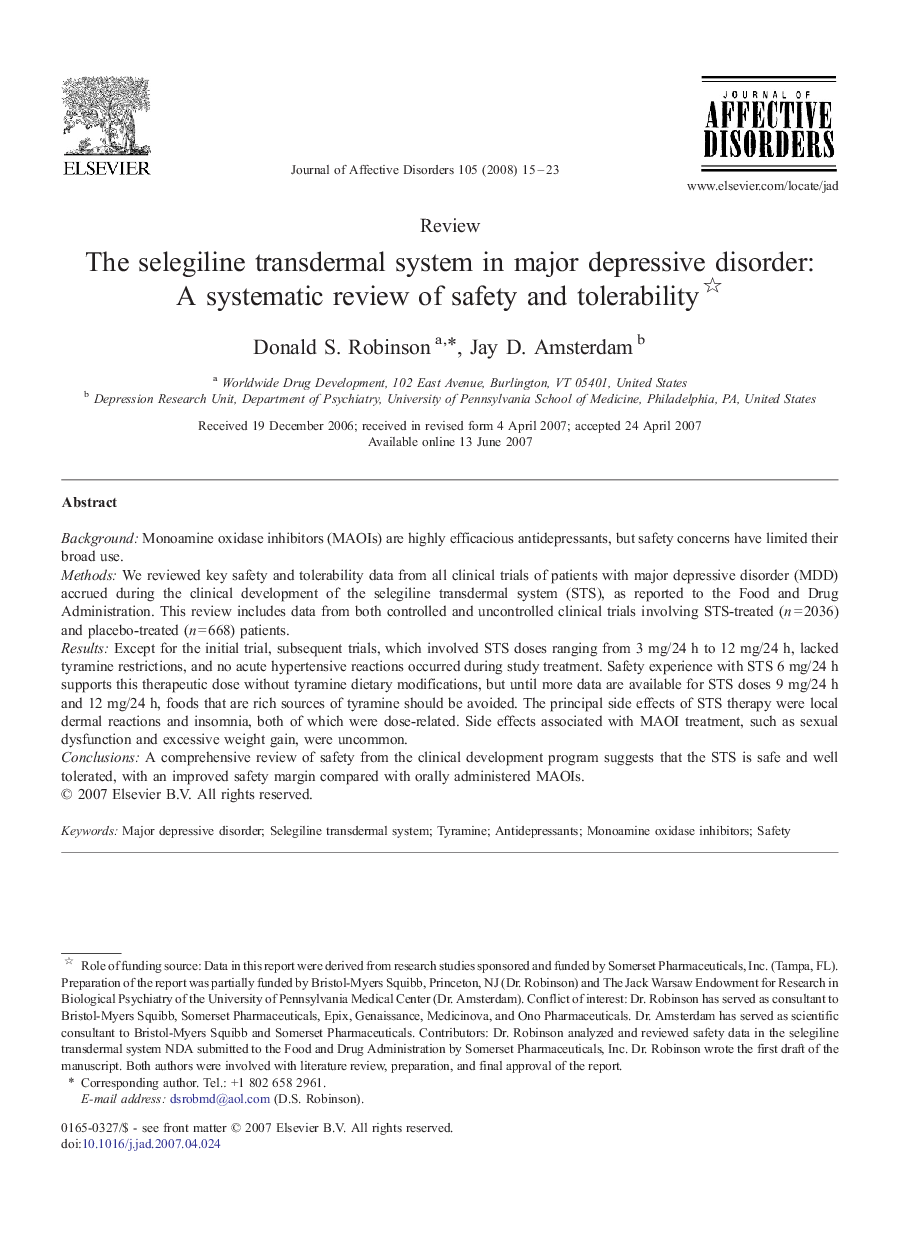| Article ID | Journal | Published Year | Pages | File Type |
|---|---|---|---|---|
| 4187710 | Journal of Affective Disorders | 2008 | 9 Pages |
BackgroundMonoamine oxidase inhibitors (MAOIs) are highly efficacious antidepressants, but safety concerns have limited their broad use.MethodsWe reviewed key safety and tolerability data from all clinical trials of patients with major depressive disorder (MDD) accrued during the clinical development of the selegiline transdermal system (STS), as reported to the Food and Drug Administration. This review includes data from both controlled and uncontrolled clinical trials involving STS-treated (n = 2036) and placebo-treated (n = 668) patients.ResultsExcept for the initial trial, subsequent trials, which involved STS doses ranging from 3 mg/24 h to 12 mg/24 h, lacked tyramine restrictions, and no acute hypertensive reactions occurred during study treatment. Safety experience with STS 6 mg/24 h supports this therapeutic dose without tyramine dietary modifications, but until more data are available for STS doses 9 mg/24 h and 12 mg/24 h, foods that are rich sources of tyramine should be avoided. The principal side effects of STS therapy were local dermal reactions and insomnia, both of which were dose-related. Side effects associated with MAOI treatment, such as sexual dysfunction and excessive weight gain, were uncommon.ConclusionsA comprehensive review of safety from the clinical development program suggests that the STS is safe and well tolerated, with an improved safety margin compared with orally administered MAOIs.
